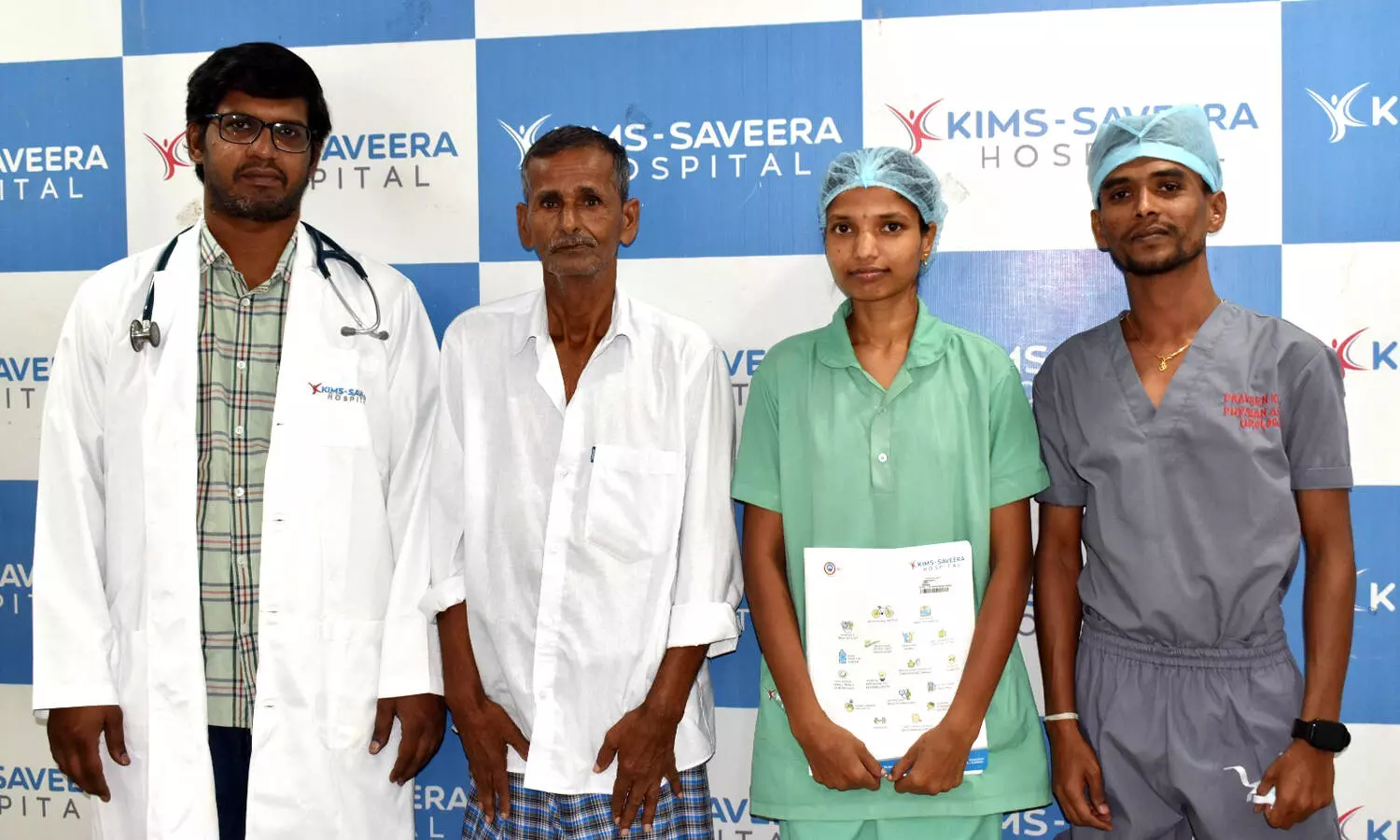KIMS Saveera successfully saves 75-year-old from rare Ureter Cancer
The patient presented symptoms including blood in the urine, right loin pain, weight loss, and loss of appetite

ANANTAPUR: In a remarkable medical achievement, doctors at KIMS Saveera in Anantapur successfully performed a laparoscopic surgery to treat Transitional Cell Carcinoma of Ureter, an exceptionally rare form of cancer with an incidence rate of only 2 in one lakh population. The patient, a 75-year-old resident from Anantapur, faced additional health challenges with comorbidities like CAPD and CAD.
Led by Senior Consultant Renal Transplant Surgeon Dr. G. Durgaprasad and HoD Anesthesia Dr. Ravishankar, the medical team executed the intricate surgery, removing the tumor along with the right kidney. Dr. Durgaprasad explained the complexity of the case, emphasizing that this type of cancer primarily affects elderly males, often around the age of 70.
Also Read: Carotid Artery Stenting on local anesthesia at KIMS Saveera Hospital
The patient presented symptoms including blood in the urine, right loin pain, weight loss, and loss of appetite. Seeking medical assistance after initially consulting local sources, the individual arrived at KIMS Saveera one month ago. Upon evaluation, an 8*5 cm large ureteric tumor with significant kidney dilation on the right side, filled with blood, was identified.
Despite delays in seeking medical attention, the team successfully undertook a laparoscopic nephro ureterectomy, a procedure lasting three hours without complications. The patient was discharged in good condition after a four-day postoperative period.
Dr. Durgaprasad highlighted the rarity of Ureter cancer, necessitating a keen clinical suspicion based on the patient's history. The challenging laparoscopic surgery, facilitated by advanced equipment and technical expertise, marked a significant medical first in the Anantapur district. Dr. Durgaprasad noted that this was the second such case in the last four years, highlighting the evolution from traditional open surgery to the now feasible laparoscopic approach in non-metro areas.



